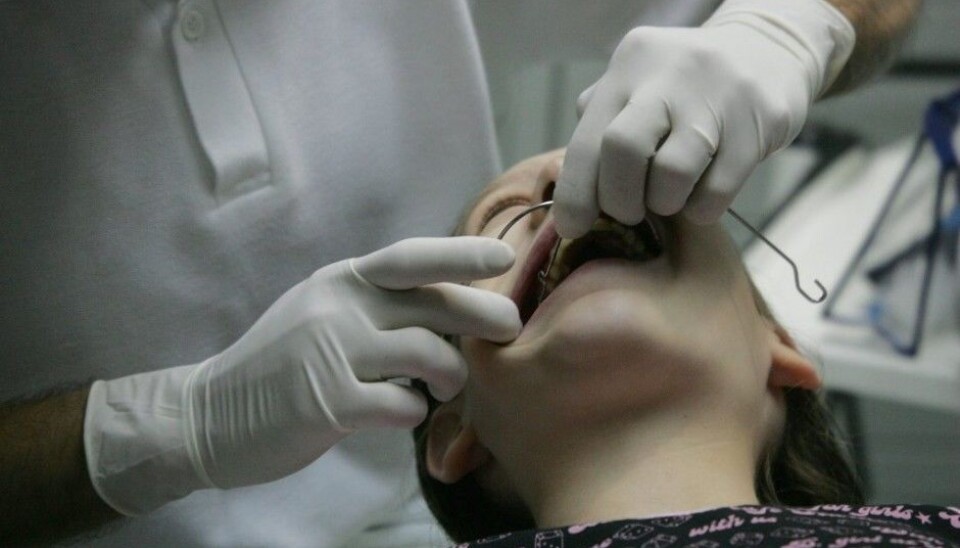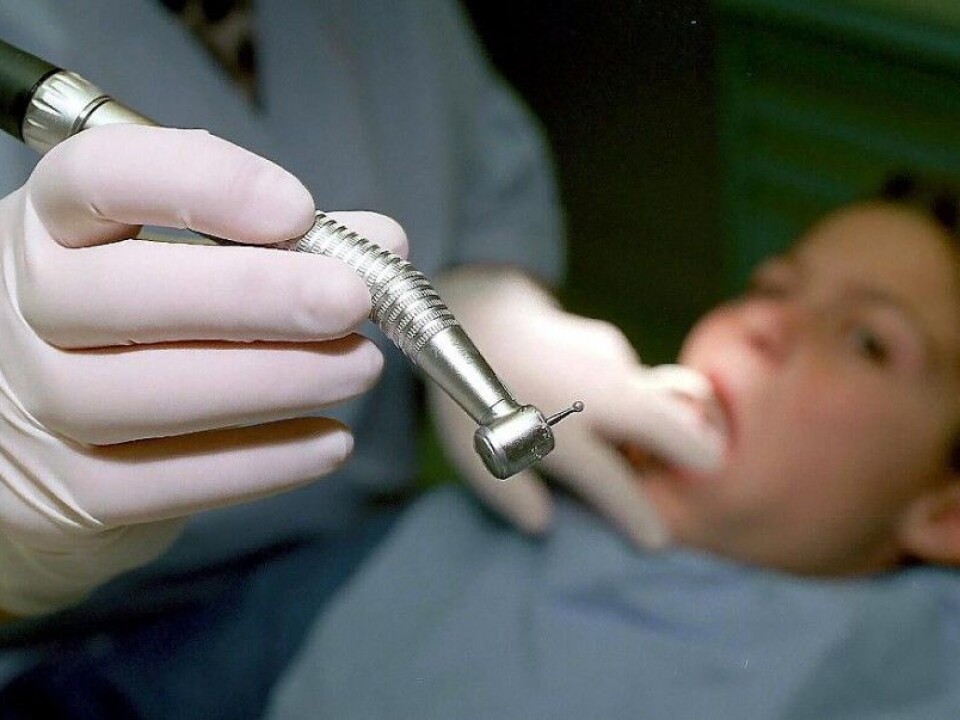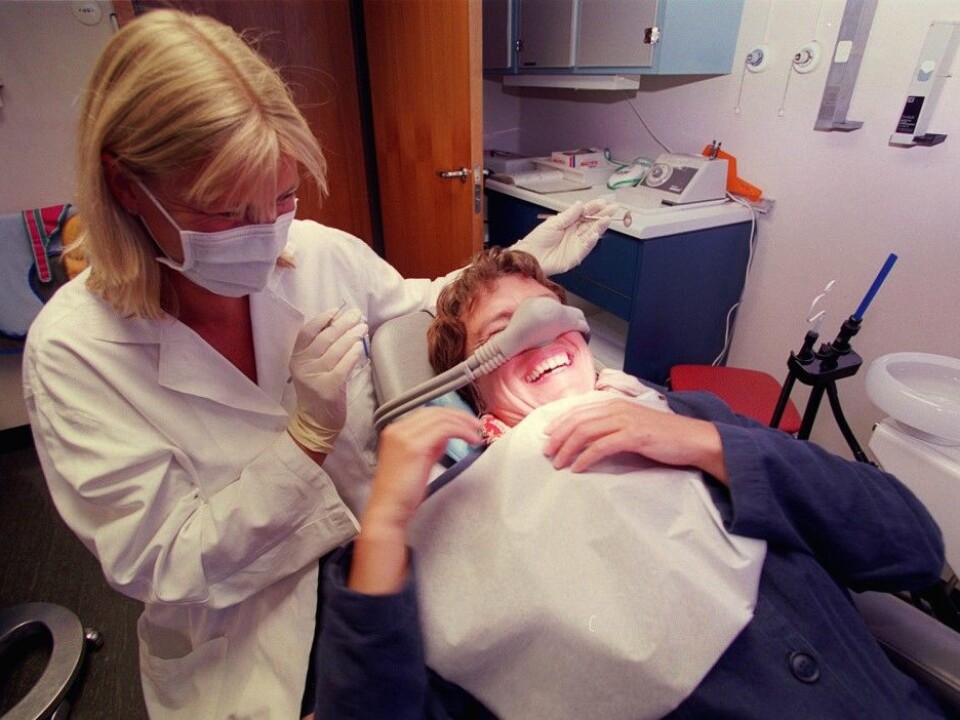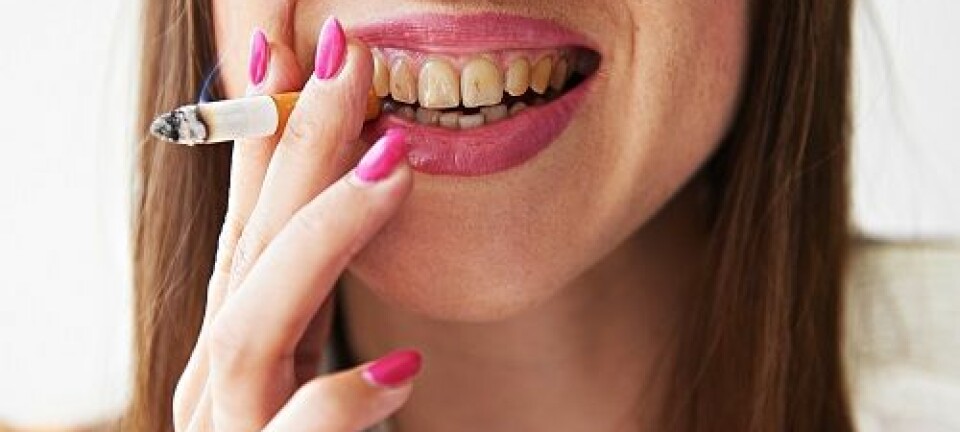
ADHD links to a vulnerability for severe dental anxiety
Persons with ADHD or who suffer certain types of anxiety and depression run higher risks of a severe fear of dentists.
Denne artikkelen er over ti år gammel og kan inneholde utdatert informasjon.
Five percent of Norwegians suffer a severe form of dental anxiety. About three percent are so fearful of dental treatment that they avoid going to dentists altogether.
In his doctoral dissertation, Viktor Carlsson at the University of Gothenburg found some characteristics which persons with severe dental anxiety are more likely to have than others.
His research indicates that adults with serious dental anxiety appear to be more generally dissatisfied with their appearance, especially their faces and mouths. Such dissatisfaction can be linked to neglected dental health and bad teeth, naturally enough, but also to symptoms of depression and general anxiety. This is a type of nagging anxiety which causes persistent fatigue.
“The more dissatisfied the participants in the study were with their own appearance, the more symptoms they had of general anxiety and depression,” says Carlsson.

His study also shows that people with severe dental anxiety have more symptoms of attention deficit hyperactivity disorder (ADHD) than the average population.
“The link between these disorders is novel and gives a very important and fascinating contribution to the field,” says Tiril Willumsen, professor of odontology at the University of Oslo.
Strongest anxiety among ADHD sufferers
The doctoral degree was based on four studies and 16 percent of the sample group screened positively for ADHD symptoms. These were known to have serious dental anxiety.
“The patients who reported suffering ADHD were among those with the most severe cases of dental anxiety and who also reported having very poor dental health. ADHD can be a risk factor for developing dental anxiety,” says Carlsson.

He stresses that he and fellow researchers measured symptoms of ADHD by administering a standardised questionnaire supported by the World Health Organization which gauges likelihood of the disorder.
Tiril Willumsen considers the determination of a connection between ADHD and severe dental anxiety quite significant.
“The doctoral study was meticulously executed and associated with a highly recognised professional milieu,” she says.
Trapped in a vicious circle
The study found that people with dental anxiety do not compensate by maintaining rigorous oral hygiene and brushing and flossing regularly. The type of anxiety some of them suffer contributes to a lower quality of life.
“Persons with severe dental anxiety are often caught in a vicious circle which starts with avoiding dental appointments because they fear them so much. This leads to poor dental health, which in turn leads to feelings of shame and withdrawal from social interaction,” says Carlsson.
He found that women and men with dental anxiety were equally dissatisfied with their looks, but that the women reported taking better care of their teeth.
The doctoral study was based on 3,500 Swedish participants, and it also uncovered a link between smoking and dental anxiety.
Cognitive behavioural therapy is effective
A systematic review of cognitive behavioural therapy (CBT) in treatment of dental anxiety comprised another part of the doctoral thesis. Willumsen was not surprised that the study shows this to be an effective treatment method for fear of seeing a dentist.
“Cognitive behavioural therapy is the commonest clinical treatment form used against dental anxiety in Norway, especially in the past few years. But the doctoral study provides a strong confirmation that such therapy is effective.”
The researchers found some support that CBT can alleviate dental anxiety immediately after treatment and in conjunction with follow-ups after a year or two. They also found that CBT made patients more willing to visit dentists.
Carlsson underscores the need for more studies to determine how effective CBT is for treating dental anxiety.
Fear on the decline in Sweden
Willumsen refers to another new Swedish study indicating that the number of teens with dental anxiety in the country dropped from 38 percent to 13 percent from 1973 to 2003.
“This is pretty strong plunge. We have no new figures which could show if there has been a comparable development in Norway, but a decrease has probably occurred here too. We have had a greater focus on dental anxiety in the past few years and the population has required less dental attention,” she says, adding that negative experiences at dental clinics comprise the biggest risk of developing dental anxiety.
“On the other hand, young people in Norway have developed increased mental problems in recent years. Dental anxiety ties in with general mental health, so that might raise doubts about a decrease,” says Willumsen.
----------------------
Read the Norwegian version of this article at forskning.no
Translated by: Glenn Ostling

































